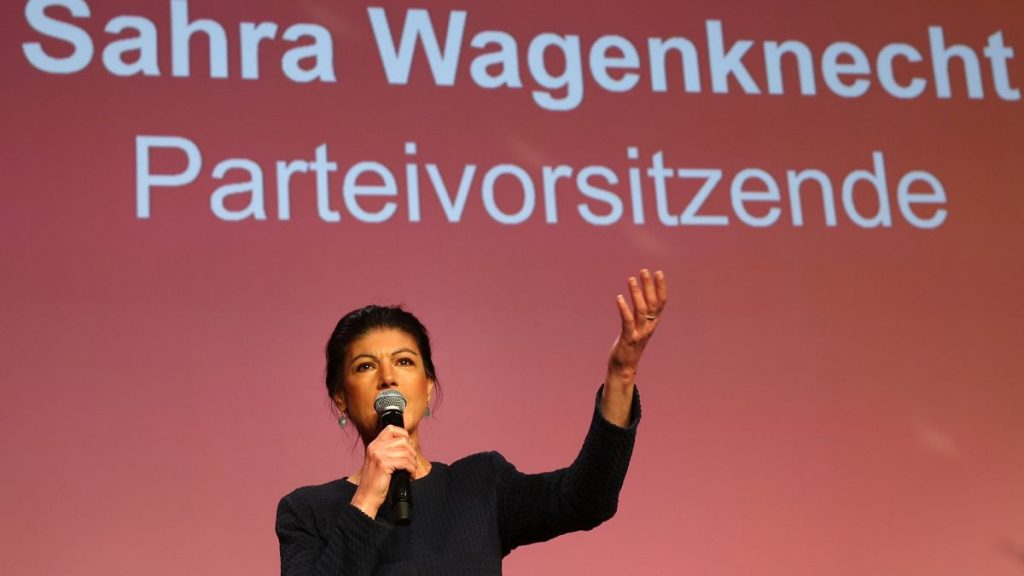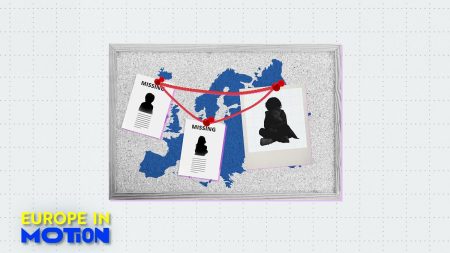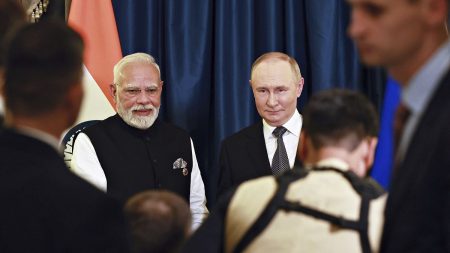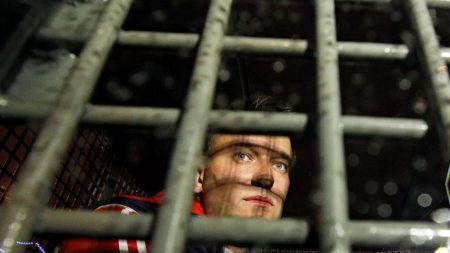Summarize this content to 2000 words in 6 paragraphs in Arabic
The left-wing conservative BSW party fell just short of the 5% threshold to enter the Bundestag with a nail-biting share of 4.97% of the vote on Sunday.
ADVERTISEMENTThe co-chair and namesake of the Sahra Wagenknecht Alliance (BSW), Sahra Wagenknecht, is considering challenging the results of elections in Germany after her party fell barely short of entering parliament on Sunday. The left-wing conservative BSW scored 4.97% after exit polls repeatedly hovered at around 5% in a tense for the party. Like all other parties in German federal elections, the BSW would have needed to clear the 5% threshold to enter the Bundestag. Speaking to reporters in Berlin, Wagenknecht said on Monday she would dispute the final results and voting process — in court, if necessary. “The question arises as to the legal validity of the election results,” Wagenknecht said, claiming her party missed out on the Bundestag by just over 130,000 votes. She raised a particular issue with overseas voting after multiple reports from the German diaspora highlighted that issues with receiving or mailing in their ballots had prevented them from participating in the election. Voters in Belgium, home to a large German diaspora, said that a two-week Belgian postal strike meant that their ballots simply didn’t arrive in time.Germany’s Ambassador to the UK Miguel Berger weighed in on the issue, commenting on X that “deadlines were calculated too tightly and the procedures are too bureaucratic” after he failed to cast his vote following postal delays. Some 210,297 German citizens living abroad had registered on the electoral roll by last Wednesday, according to German newspaper Die Zeit. It remains unclear how many did not cast their vote due to procedural delays. Elsewhere, Wagenknecht made allegations against the polling institute Forsa. Without providing evidence, she said the institute had consistently reported low values for the BSW, discouraging voters from supporting her party. According to Wagenknecht, the media also played a role in putting the BSW “in a bad light, our positions were no longer taken into account.”Wagenknecht formed the BSW after splintering from the far-left Die Linke or The Left party in early 2024. The party’s unique brand of “left conservatism” saw initial success in the state elections of Saxony and Thuringia as well as in last June’s European elections, where it received 6.2% of the German vote. “Even if we achieved the best result in our history in absolute terms of votes, it is weaker in percentage terms than in the European elections,” Wagenknecht said. However, she added that the BSW’s score on Sunday is “the best that a new party has ever achieved in a first federal election.”Aside from the BSW, the liberal Free Democratic Party (FDP) also failed to clear the threshold to make it into parliament. Its head, former Finance Minister Christian Lindner, announced his retirement from politics in an X post late on Sunday. “The federal election brought a defeat for the FDP, but hopefully a new beginning for Germany. That was what I had fought for,” Lindner said.ADVERTISEMENTOut of Germany’s smaller parties, only The Left enjoyed success — managing to gain 8% of the vote after falling behind in the polls for months. The party gained momentum with a viral social media campaign right before polling day.
rewrite this title in Arabic BSW’s Sahra Wagenknecht mulls challenging German election results
مقالات ذات صلة
مال واعمال
مواضيع رائجة
النشرة البريدية
اشترك للحصول على اخر الأخبار لحظة بلحظة الى بريدك الإلكتروني.
© 2025 جلوب تايم لاين. جميع الحقوق محفوظة.













